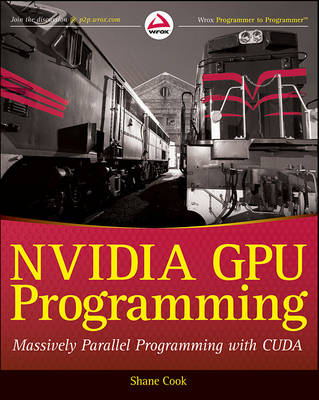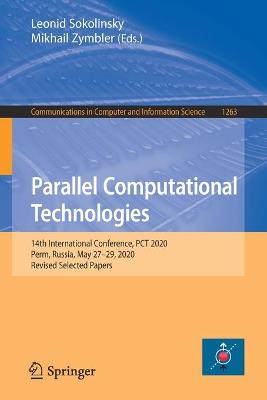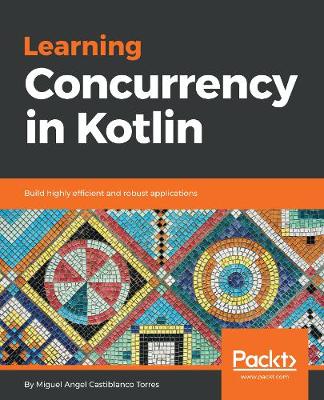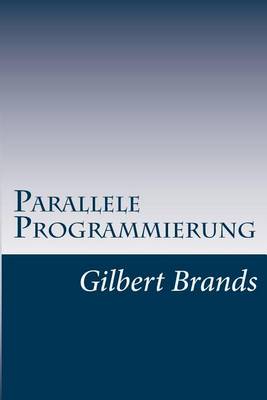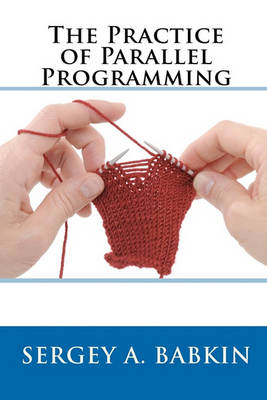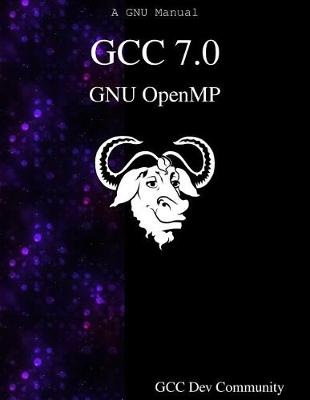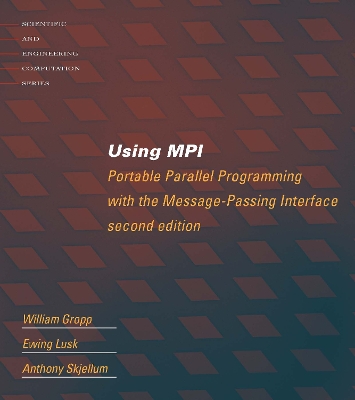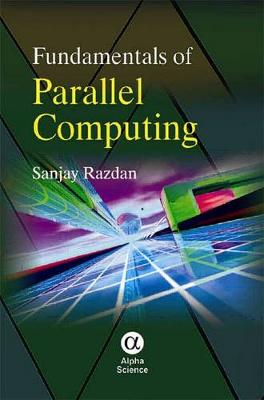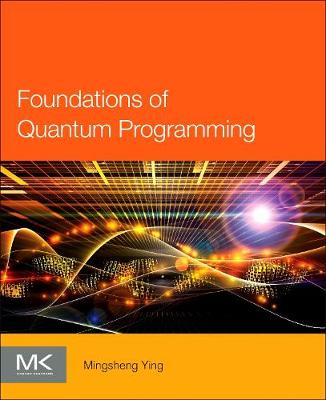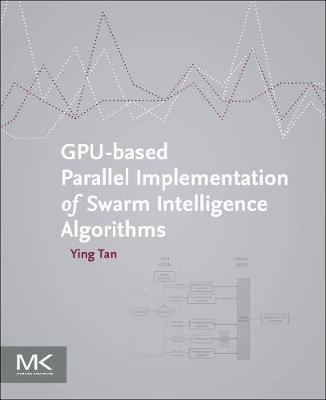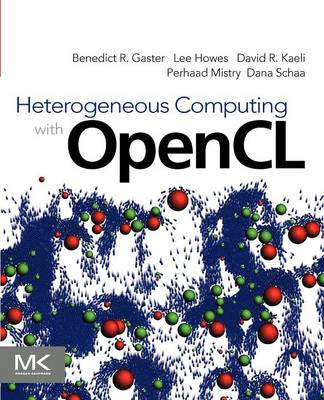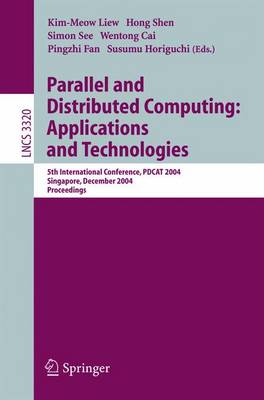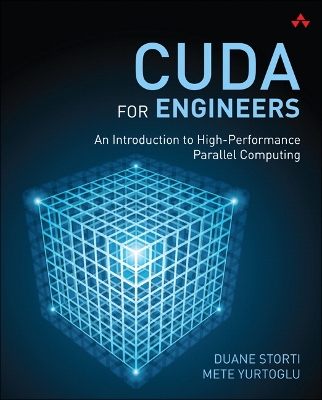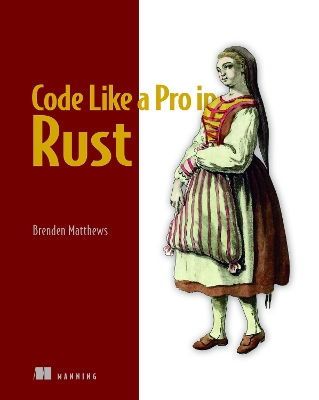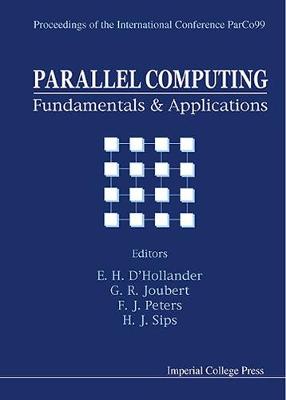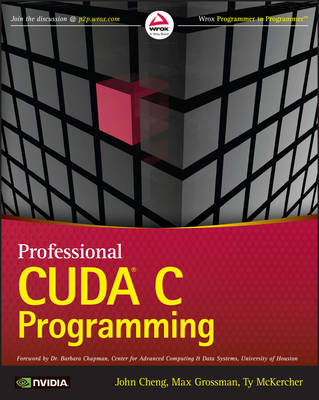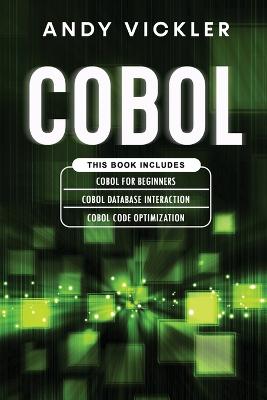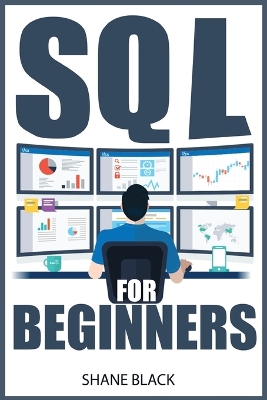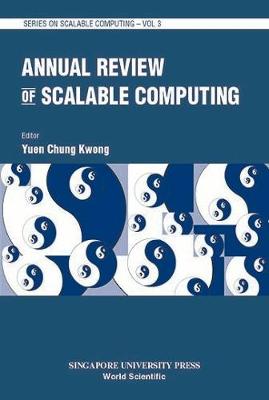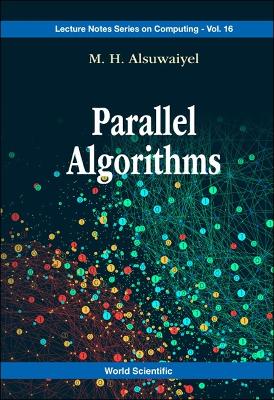Learn how to switch from writing serial code to parallel code NVIDIA made it easy and understandable to program the rarely used engine inside a PC with CUDA (Compute Unified Device Architecture). It allows for a significant increase in your computer's performance because it harnesses the power of the GPU. With this book, you'll learn to switch on that hidden power and turbo charge your programs. CUDA specialist Shane Cook discusses the many uses for CUDA, including image and video processing, co...
Personal Expense Tracker (Make It Easy, #6) (Control the Chaos, #4)
by Daisy Publishing
Parallel Computational Technologies (Communications in Computer and Information Science, #753)
This book constitutes refereed proceedings of the 14th International Conference on Parallel Computational Technologies, PCT 2020, held in May 2020. Due to the COVID-19 pandemic the conference was held online.The 22 revised full papers and 2 short papers presented were carefully reviewed and selected from 124 submissions. The papers are organized in topical sections on high performance architectures, tools and technologies; parallel numerical algorithms; supercomputer simulation.
Take advantage of Kotlin's concurrency primitives to write efficient multithreaded applicationsKey FeaturesLearn Kotlin’s unique approach to multithreadingWork through practical examples that will help you write concurrent non-blocking codeImprove the overall execution speed in multiprocessor and multicore systemsBook DescriptionThe primary requirements of modern-day applications are scalability, speed, and making the most use of hardware. Kotlin meets these requirements with its immense support...
Using MPI (Using MPI) (Scientific and Engineering Computation)
by William Gropp, Ewing Lusk, and Anthony Skjellum
The Message Passing Interface (MPI) specification is widely used for solving significant scientific and engineering problems on parallel computers. There exist more than a dozen implementations on computer platforms ranging from IBM SP-2 supercomputers to clusters of PCs running Windows NT or Linux ("Beowulf" machines). The initial MPI Standard document, MPI-1, was recently updated by the MPI Forum. The new version, MPI-2, contains both significant enhancements to the existing MPI core and new f...
As multicore and manycore systems become increasingly dominant, handling concurrency will be one of the most crucial challenges developers face. Just as most mainstream programmers have been required to master GUIs and objects, so it will be for concurrency: to achieve the performance they need, developers will have to build and master new libraries, tools, runtime systems, language extensions and above all, new programming best practices. In Effective Concurrency in C++, world-renowned programm...
Foundations of Quantum Programming discusses how new programming methodologies and technologies developed for current computers can be extended to exploit the unique power of quantum computers, which promise dramatic advantages in processing speed over currently available computer systems. Governments and industries around the globe are now investing vast amounts of money with the expectation of building practical quantum computers. Drawing upon years of experience and research in quantum comput...
GPU-based Parallel Implementation of Swarm Intelligence Algorithms
by Ying Tan
GPU-based Parallel Implementation of Swarm Intelligence Algorithms combines and covers two emerging areas attracting increased attention and applications: graphics processing units (GPUs) for general-purpose computing (GPGPU) and swarm intelligence. This book not only presents GPGPU in adequate detail, but also includes guidance on the appropriate implementation of swarm intelligence algorithms on the GPU platform. GPU-based implementations of several typical swarm intelligence algorithms suc...
Heterogeneous Computing with OpenCL
by Benedict Gaster, Lee Howes, David R. Kaeli, Perhaad Mistry, and Dana Schaa
Heterogeneous Computing with OpenCL teaches OpenCL and parallel programming for complex systems that may include a variety of device architectures: multi-core CPUs, GPUs, and fully-integrated Accelerated Processing Units (APUs) such as AMD Fusion technology. Designed to work on multiple platforms and with wide industry support, OpenCL will help you more effectively program for a heterogeneous future. Written by leaders in the parallel computing and OpenCL communities, this book will give you...
Parallel and Distributed Computing (Lecture Notes in Computer Science, #3320)
by Kimmeow Liew
The 2004 International Conference on Parallel and Distributed Computing, - plications and Technologies (PDCAT 2004) was the ?fth annual conference, and was held at the Marina Mandarin Hotel, Singapore on December 8-10, 2004. Since the inaugural PDCAT held in Hong Kong in 2000, the conference has - come a major forum for scientists, engineers, and practitioners throughout the world to present the latest research, results, ideas, developments, techniques, and applications in all areas of parallel...
CUDA for Engineers gives you direct, hands-on engagement with personal, high-performance parallel computing, enabling you to do computations on a gaming-level PC that would have required a supercomputer just a few years ago. The authors introduce the essentials of CUDA C programming clearly and concisely, quickly guiding you from running sample programs to building your own code. Throughout, you’ll learn from complete examples you can build, run, and modify, complemented by additional projects...
Get ready to code like a pro in Rust! This hands-on guide dives deep into memory management, asynchronous programming, and Rust design patterns and explores essential productivity techniques like testing, tooling, and project management. In Code Like A Pro in Rust you will learn: Essential Rust toolingCore Rust data structuresMemory managementDesign patterns for RustTesting in RustAsynchronous programming for RustOptimized RustRust project management Code Like A Pro in...
This millennium will see the increased use of parallel computing technologies at all levels of mainstream computing. Most computer hardware will use these technologies to achieve higher computing speeds, high speed access to very large distributed databases and greater flexibility through heterogeneous computing. These developments can be expected to result in the extended use of all types of parallel computers in virtually all areas of human endeavour. Compute-intensive problems in emerging are...
Professional CUDA C Programming
by John Cheng, Max Grossman, and Ty McKercher
Break into the powerful world of parallel GPU programming with this down-to-earth, practical guide Designed for professionals across multiple industrial sectors, Professional CUDA C Programming presents CUDA -- a parallel computing platform and programming model designed to ease the development of GPU programming -- fundamentals in an easy-to-follow format, and teaches readers how to think in parallel and implement parallel algorithms on GPUs. Each chapter covers a specific topic, and includes...
This book concerns a Josephson device for supercomputers which has extremely low heat dissipation (about 106 times less than semiconductor devices and 103 times less than voltage-based Josephson devices). In the previous book on Quantum Flux Parametrons (QFPs), DC Flux Parametron, the basic device operation are described. This book deals in much greater depth on the problems which are faced by the QFP. The device characteristics are worked out in detail showing clearly the analysis methods used....
Annual Review Of Scalable Computing, Vol 3 (Series On Scalable Computing, #3)
by Chung Kwong Yuen
The third volume in the Series on Scalable Computing, this book contains five new articles describing significant developments in the field. Included are such current topics as clusters, parallel tools, load balancing, mobile systems, and architecture independence.
Parallel Algorithms (Lecture Notes Series on Computing, #0)
by M. H. Alsuwaiyel
This book is an introduction to the field of parallel algorithms and the underpinning techniques to realize the parallelization. The emphasis is on designing algorithms within the timeless and abstracted context of a high-level programming language. The focus of the presentation is on practical applications of the algorithm design using different models of parallel computation. Each model is illustrated by providing an adequate number of algorithms to solve some problems that quite often arise i...

